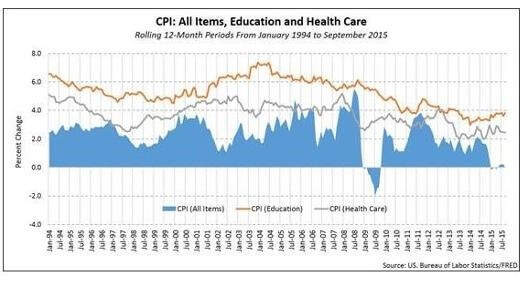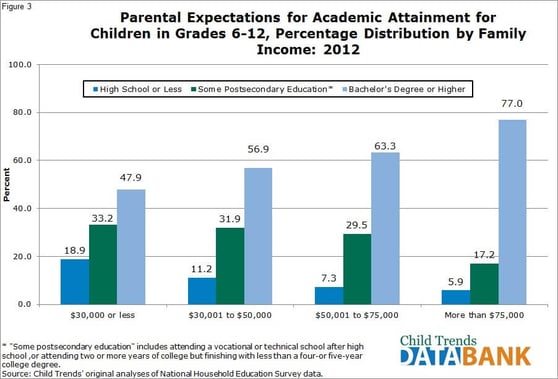Did You Know that the Cost of Education is Continuing to Soar, Faster than Inflation or Healthcare Costs?
According to the U.S. Census Bureau, as of 2015, 88% of the United States population age 25+ had obtained a high school degree, and only 32.5% of the population had obtained a bachelor’s degree. Additionally, only 12% of the population received an advanced degree (i.e., Master’s or Professional degree). We have a huge education gap here in the United States, larger than many other developed countries. There are many reasons for this gap, including the affordability of and access to education, generational gaps, etc.
The cost of college education in the U.S. continues to increase an average of 5.2% annually. This is higher than the rate of inflation and the annual increase in health care costs. If the average cost of a public university today is $21,000 and you have a child or grandchild planning on going to school in 18 years, their total cost to attend 4 years of college will be approximately $200,000.

As a result of the high cost of education, many of the college-aged population are not attending college. If they do decide to attend, they are having difficulties affording their education, especially if they do not receive any scholarships or subsidies. Furthermore, children with parents that have college degrees are more likely to go to and finish college. Children with parents that do not have any higher education often continue in the same pattern of not going to or finishing college, and the cycle of little to no education, and thereby poverty and inequality, continues.

This is why it is imperative for parents and grandparents to encourage our children to finish high school and obtain higher degrees, whether it’s college or graduate school or more. And as higher education costs continue to increase every single year, it is also important to help our children with the costs of a college education.
There are benefits to beginning to save for college within tax-deferred programs such as 529 plans or other types of tuition programs. There is also a great benefit to saving early for a child's college education to take advantage of compound growth over time.
To learn more about tax-efficient savings for higher education, please reach out to us or read some of our other articles about 529 plans here.









